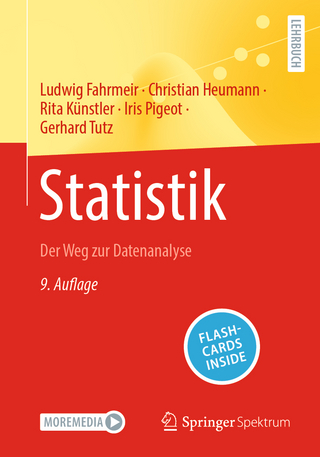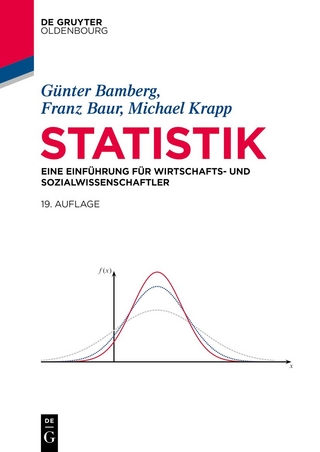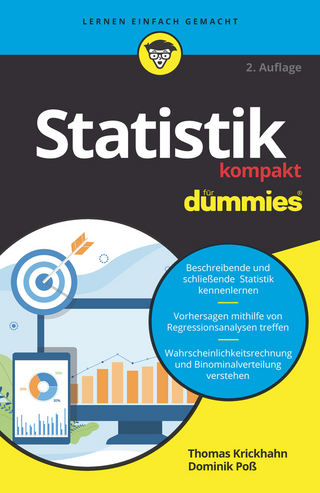
Bayesian Inference for Probabilistic Risk Assessment
A Practitioner's Guidebook
Seiten
2013
Springer London Ltd (Verlag)
978-1-4471-2708-6 (ISBN)
Springer London Ltd (Verlag)
978-1-4471-2708-6 (ISBN)
Bayesian Inference for Probabilistic Risk Assessment provides a Bayesian foundation for framing probabilistic problems and performing inference on these problems. Inference in the book employs a modern computational approach known as Markov chain Monte Carlo (MCMC). The MCMC approach may be implemented using custom-written routines or existing general purpose commercial or open-source software. This book uses an open-source program called OpenBUGS (commonly referred to as WinBUGS) to solve the inference problems that are described. A powerful feature of OpenBUGS is its automatic selection of an appropriate MCMC sampling scheme for a given problem. The authors provide analysis “building blocks” that can be modified, combined, or used as-is to solve a variety of challenging problems.
The MCMC approach used is implemented via textual scripts similar to a macro-type programming language. Accompanying most scripts is a graphical Bayesian network illustrating the elements of the script and the overall inference problem being solved. Bayesian Inference for Probabilistic Risk Assessment also covers the important topics of MCMC convergence and Bayesian model checking.
Bayesian Inference for Probabilistic Risk Assessment is aimed at scientists and engineers who perform or review risk analyses. It provides an analytical structure for combining data and information from various sources to generate estimates of the parameters of uncertainty distributions used in risk and reliability models.
The MCMC approach used is implemented via textual scripts similar to a macro-type programming language. Accompanying most scripts is a graphical Bayesian network illustrating the elements of the script and the overall inference problem being solved. Bayesian Inference for Probabilistic Risk Assessment also covers the important topics of MCMC convergence and Bayesian model checking.
Bayesian Inference for Probabilistic Risk Assessment is aimed at scientists and engineers who perform or review risk analyses. It provides an analytical structure for combining data and information from various sources to generate estimates of the parameters of uncertainty distributions used in risk and reliability models.
1. Introduction and Motivation.- 2. Introduction to Bayesian Inference.- 3. Bayesian Inference for Common Aleatory Models.- 4. Bayesian Model Checking.- 5. Time Trends for Binomial and Poisson Data.- 6. Checking Convergence to Posterior Distribution.- 7. Hierarchical Bayes Models for Variability.- 8. More Complex Models for Random Durations.- 9. Modeling Failure with Repair.- 10. Bayesian Treatment of Uncertain Data.- 11. Bayesian Regression Models.- 12. Bayesian Inference for Multilevel Fault Tree Models.- 13. Additional Topics.
| Reihe/Serie | Springer Series in Realibility Engineering |
|---|---|
| Zusatzinfo | XII, 228 p. |
| Verlagsort | England |
| Sprache | englisch |
| Maße | 155 x 235 mm |
| Themenwelt | Mathematik / Informatik ► Mathematik ► Statistik |
| Naturwissenschaften ► Physik / Astronomie | |
| Technik ► Bauwesen | |
| Technik ► Maschinenbau | |
| Schlagworte | Bayesian inference • Bayesian networks • MCMC • probabilistic risk assessment • Reliability |
| ISBN-10 | 1-4471-2708-0 / 1447127080 |
| ISBN-13 | 978-1-4471-2708-6 / 9781447127086 |
| Zustand | Neuware |
| Haben Sie eine Frage zum Produkt? |
Mehr entdecken
aus dem Bereich
aus dem Bereich
Eine Einführung für Wirtschafts- und Sozialwissenschaftler
Buch | Softcover (2022)
De Gruyter Oldenbourg (Verlag)
29,95 €


